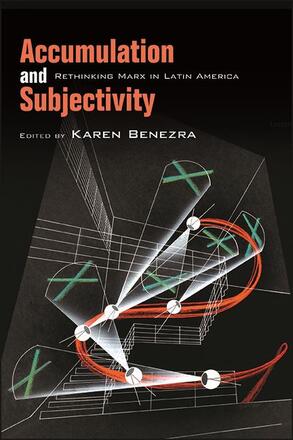
Accumulation and Subjectivity
Rethinking Marx in Latin America
Alternative formats available from:
Reconsiders key concepts in Marxist thought by examining the relationship between accumulation and subjectivity in Latin American narrative, film, and social and political theory.
Description
Since the 1970s, sociocultural analysis in Latin American studies has been marked by a turn away from problems of political economy. Accumulation and Subjectivity challenges this turn while reconceptualizing the relationship between political economy and the life of the subject. The fourteen essays in this volume show that, in order to understand the dynamics governing the extraction of wealth under contemporary capitalism, we also need to consider the collective subjects implied in this operation at an institutional, juridical, moral, and psychic level. More than merely setting the scene for social and political struggle, Accumulation and Subjectivity reveals Latin America to be a cauldron for thought for a critique of political economy and radical political change beyond its borders. Combining reflections on political philosophy, intellectual history, narrative, law, and film from the colonial period to the present, it provides a new conceptual vocabulary rooted in the material specificity of the region and, for this very reason, potentially translatable to other historical contexts. This collection will be of interest to scholars of Marxism, Latin American literary and cultural studies, and the intellectual history of the left.
Karen Benezra is Assistant Professor in the Institute for Philosophy and Sciences of Art, at Leuphana University of Lüneburg in Germany. She is the author of Dematerialization: Art and Design in Latin America.
Reviews
"This unique book productively works through a double bind central to both Latin American studies and Marxism: the struggle between structure (accumulation) and agency (subjectivity). The volume consistently attends to and elaborates on such key contexts as socioeconomic formation, formal subsumption, and primitive accumulation. It is rare to find an edited collection of essays that address the same problems from such richly diverse perspectives." — Emilio Sauri, coeditor of Literature and the Global Contemporary
"This is a splendid volume, the likes of which (to my knowledge) have yet to be published in English. It offers a unique, capacious reading in Latin American culture, politics, and intellectual history by—retooling a phrase from the introduction— rediscovering Marx and Marxist theory from Latin America. Adopting a capacious and overlapping approach, this book will enrich the bibliographies of scholars across a range of fields in the humanities and social sciences." — Samuel Steinberg, author of Photopoetics at Tlatelolco: Afterimages of Mexico, 1968